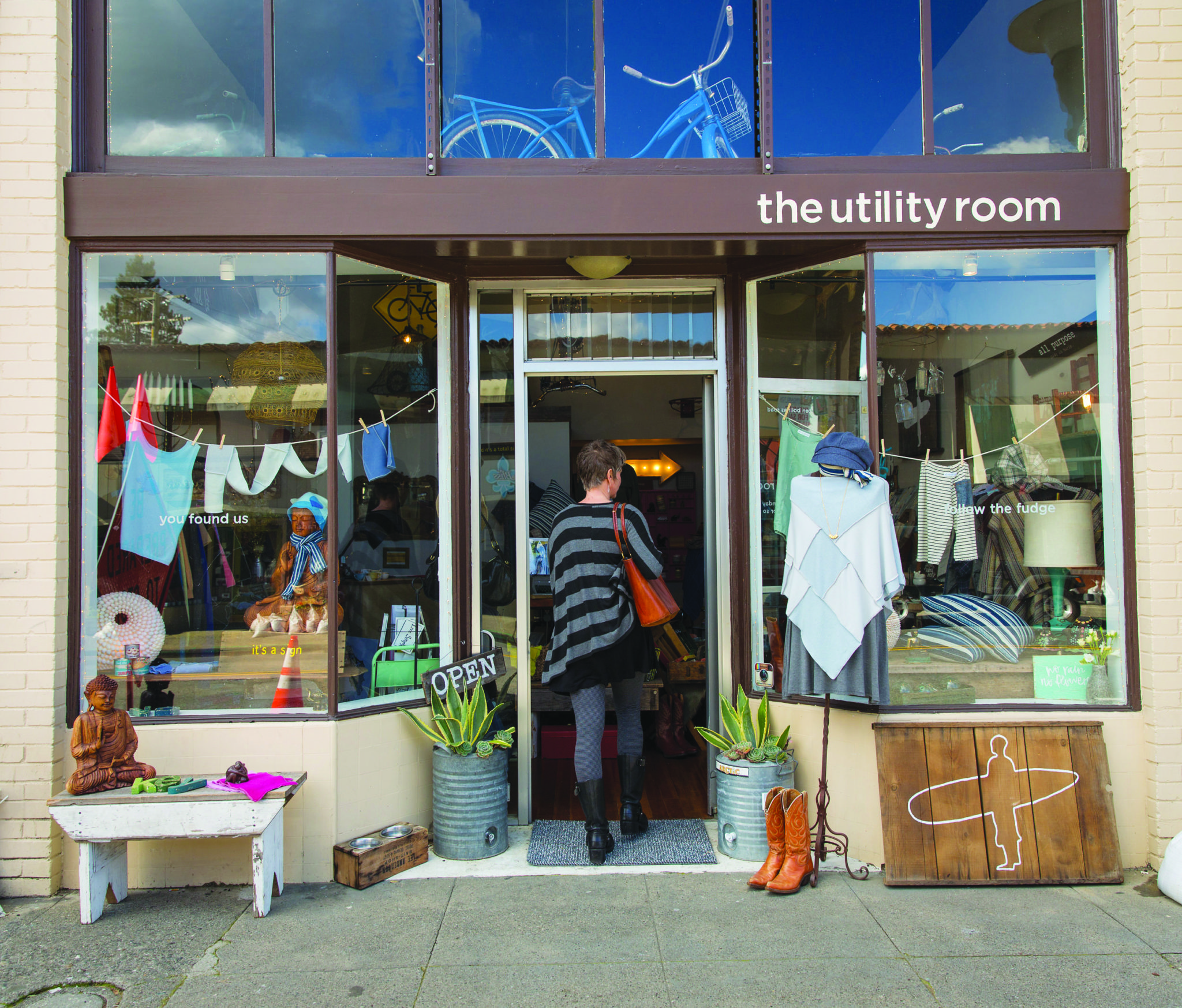By Tom Gogola and Kate Hoover
While the big news in the business pages of late is that Whole Foods Market is being purchased by independent-retailer-gobbling behemoth Amazon, another regional grocer, Oliver’s Market, is going in the opposite direction and focusing on local ownership—as in, employee ownership.
Oliver’s, Sonoma County’s largest independent grocer, just sold 43 percent of the company to its employees through an employee stock ownership plan (ESOP), granting a majority of its 1,000-plus employees the ability to collectively purchase this portion of the company.
With the move, the company joined the ranks of companies such as Armstrong Garden Centers, which has been employee-owned since 1987 and has also sided with workers over the monopoly racket undertaken by Amazon.
A 2015 report in the Mercury News noted that several companies in Marin, including the recently-expanded Armstrong Nurseries (which purchased Sunnyside Nursery that year), are employee-owned: Fairfax Hardware and Bank of Marin among them.
“The owners of the company decided not to have another corporate entity buy them out,” says San Anselmo Armstrong Garden Center manager Eugene Rougeau. “The concern in our industry is that knowledgeable gardeners and nurserymen are rare, and the fear is that in turning the company over to another entity would liquidate the employees.”
Armstrong Garden Centers has 30-plus outlets around the state, most of them in Southern California, and three in the Bay Area.
Corey Rosen is an Oakland-based expert on the ESOP phenomenon at the National Center for Employee Ownership, which he founded. He notes that there are good ESOPs and there are bad ESOPs, and highlights the failed employee-ownership attempt at United Airlines to empower its employees with buy-in on ownership of the company.
“There are companies that have done very poorly with it,” he says—and a key arbiter is whether a company, such as Oliver’s, can absorb the cost of creating an ESOP—which means that a company already has to be profitable going in, in order to make it work.
When the ESOP does work, Rosen says, it provides workers with additional layers of protections and security that non-ESOP employees simply don’t enjoy.
Rosen cites a recent data set that found millennials who are working for ESOP-participant companies have a median income 33 percent higher than those who aren’t. “Participating in ESOPs answers not just your retirement question, but your overall economic well-being,” Rosen says. “And they are much less—hugely less likely to get laid off.”
Rosen is among several people interviewed who gave Oliver’s high marks for its employee-focused move—especially in light of the Amazon purchase of Whole Foods, a move in the complete opposite direction of worker protection.
He notes that John Mackey (the Obamacare-hating owner of Whole Foods, aka “Whole Paychecks”) could have gone the ESOP route but chose not to.
Companies that do make this choice are not always motivated by the bottom line, says Rosen, and usually are already highly invested in workplace development and other pro-worker programs, including retirement plans.
“In companies where owners have a choice—and Oliver’s is a very good example of this—[company president Steve Maass] could have sold it to all kinds of people,” Rosen says. “Most of the time the ESOP will pay a competitive price, but he could have sold it for a lot more, and instead he said, ‘I have enough money and legacy matters to me.’”
Now Oliver’s has joined the regional club of ESOP businesses, and Maass says that he wanted to continue the legacy of the market and keep the stores independent.
“It’s a way of keeping a local business local,” Maass says. “It has created a lot of excitement with the employees and with the community.”
With the announcement of the stock ownership plan earlier this month, Oliver’s is now the largest employee-owned company in Sonoma County. More than 600 of its employees qualify to engage in the stock ownership plan.
The plan will provide employees with more than 10 years of service full vesting of their allocated shares immediately. All eligible employees that began working at the start of the year will be fully vested for three years.
Maass founded Oliver’s Market in Cotati in 1988 with a vision to create a store where customers truly enjoyed shopping for groceries. The store is now the largest supporter of products made and grown in Sonoma County, carrying products from more than 600 businesses in Sonoma County alone.
Maass credits the success of Oliver’s Market to the longtime managers, staff and employees who have played key roles in the company’s growth over the years.
“I certainly didn’t build the place myself,” Maass says. “Everybody here participated.”
Maass says his own future played a role in the decision to enact the stock ownership plan. “I’m 71 years old,” he says. “I was trying to figure out how to retire—sort of.”
Regional business and labor leaders praised the move by Maass.
Ben Stone, Executive Director of the Sonoma County Economic Development Board, described the Oliver’s move as “very progressive and definitely a way to reach out to the employees and let them be involved in new ways as owners of the company,” as he cited a couple of other ESOP-inclusive businesses in the area, including the muffler movers at Flowmaster.
North Bay labor activist Marty Bennett echoed Stone’s enthusiasm—but with a caveat.
“It can only be good news from labor’s perspective,” Bennett says.
Yet Bennett says he has heard from younger employees at Oliver’s about some issues around uncertainty in scheduling—“they don’t know the schedule until a week before”—and the starting pay is $13 an hour. Bennett’s a huge champion of the Fight for $15 across the North Bay.
“They are better employers than many retailers,” he says, “but I do not want to say that they have the highest possible labor standards.”
Meanwhile, Armstrong Garden Centers recently expanded its ESOP community with a joint venture with a nursery in Georgia that’s also an ESOP, Pike Nurseries. The company’s growth, says Rougeau, is directly linked to its employee-first mandate.
“Like all the companies in 2008, we suffered,” he says, referencing the Bush-era Great Recession. “The management team that was here cut their personal wages to keep the company solvent. We all want to see the company build.”
P.S.: They’re hiring.








